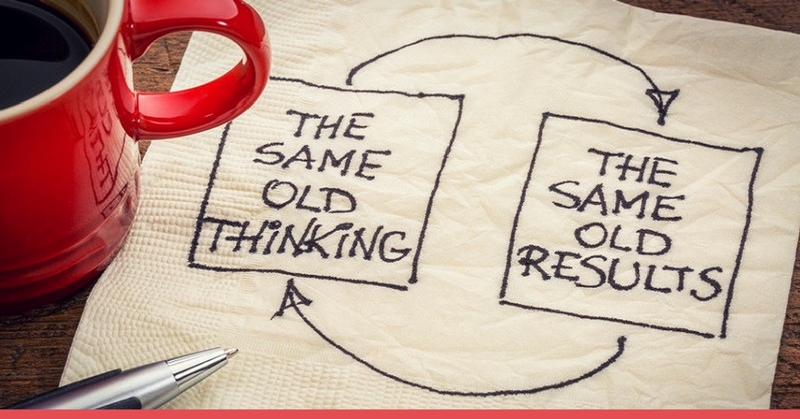A brief Psych. reflection: Schema Theory, Memory and Self-Fulfilling prophecies.
What is a schema?
Schemata are mental structures people create to help them organise and store information. Our understanding of how our environments work, people's behaviour and every other little detail of life are stored in these boxes. Schema Theory explains that we draw on prior knowledge to recall- and apply meaning to new and familiar situations.
Jean Piaget believed that schemata were acquired and constructed at an early age. According to Piaget we create these mental constructs to help us navigate Life and the various situations we encounter. Schemata can be likened to 'scripts' that dictate the way we react to environmental stimulus.
When we are extremely busy or experience cognitive overload we rely on schemata as a sort of autopilot.
In this sense schemata can be seen as forms of cognitive heuristics. Cognitive heuristics are rules and preferences that determine our almost instantaneous judgements and quick decision making abilities. They are the rules we fall back on when there isn't time to reason or logically evaluate options.
4 Key elements of a schema (Papas: 2014):
- An individual can memorize and use a schema without even realizing.
- Once a schema is developed, it tends to be stable over a long period of time.
- The Human mind uses schemata to organize, retrieve, and encode chunks of important information.
- Schemata are accumulated over time and through different experiences.
Schemata and memories:
In 1932 Frederick Bartlett researched the effect of Schemata on memory recall. The study's participants listened to a story and tried to remember as much as they could. The participants were asked to retell the story at different time intervals.
In short, Bartlett's study proved that factual memories become obscured by subjectivity. While participants remembered key points of the story, they used subjective schemata to fill in the blanks. Bartlett noted that participants included details that conformed to their expectations of how the story should have been told and what should have happened. Participants also excluded details that contradicted their ideas of the best version of the story.
Before we continue, is important to emphasize that we have established that schemata are inherently subjective and susceptible to flawed beliefs. Let us continue to discuss how deliberate and influential they are on the trajectory of our lives.
Confirmation Bias:
Confirmation bias refers to the idea that individuals deem information valuable only in as much it serves to confirm existing ideas. People disregard information which challenges certain preconceived notions or desirable 'truths' irrespective of the fact that they might be flawed or self-defeating. What confirmation bias essentially reveals is that we will believe lies as long as they confirm our apparent self-serving schemata.
The fictional Mr. R:
Mr R's schema on 'girlfriends' was created as a child (and has never stopped developing). It was influenced by his parents and sisters' relationships, the media and his female friends, amongst others. His relationships have been rocky to say the least. Most of his girlfriends have been abusive, critical, manipulative and jealous.
The thought of entering another relationships makes Mr R break out in a cold sweat. Though he's lonely and would like to enter a committed, healthy relationship he struggles to denounce his negative mental frameworks regarding relationships.
A colleague has arranged for Mr R to meet one of her friends on a Blind Date. According to the Freudian theory of Psychological Projection, Mr R could project his conscious and unconscious fear, as dictated by his relationship-schema, onto the date. He uses projection as a defence mechanism to protect himself from negative feelings. These, in turn, solidify his erroneous schema.
Although the date theoretically went well, Mr R's schema on relationships distorts objective reality to fit his flawed beliefs. Mr R does not only project his fears but unconsciously employs confirmation bias to filter input to support the latter. Mr R projects his uncertainty onto the date and views her behaviour as ambiguous or distrustful.
According to Bartlett's study, Mr R's memories on this night will be adjusted to fit his schema, accordingly. Unwittingly, Mr R is fashioning a set of beliefs and supporting behaviour that result in self-fulfilling prophecies.
In conclusion:
Although the example given does not delve into all of the intricacies involved, it is possible to see that our beliefs can limiting and self-defeating. They have the potential to lead to self-fulfilling prophecies and trap us on hamsters-wheels going nowhere.
A few other examples would include:
Going to a job interview believing that you will not make it through the first round of interviews. Behaviour and thought patterns will conform to the belief and result in self-fulfilling prophecies.
Continuously telling yourself that "these early-morning drivers in traffic make me furious" sets one up, and opens the door to that reality.
And on a personal note:
My schema on strangers and acquaintances: I inherently distrust people. My internal dialogue always questions why people do what they do. If someone is talking to me, I always try and figure out to what extent his words are self-serving. I am always suspicious.
Although helpful at times, this view on others make a day very tiring. The fact that I am like this makes me look for reasons to confirm that I am correct. This is a schema that influences a big part of my perception of the external world, for the negative. I rationally know that this isn't necessarily true, but I choose to believe this and back it up by support of real life events and examples. Schemata like this make it easy to stay in a 'victim-mentality'. When I become unhappy with circumstances or events, I mostly blame others.
I will always tell my girlfriend: "so x, y and z said this and that, see, I told you he only cares about himself!", etc.
Questions:
- After reading this post, do you recognise any self-defeating schemata in your own life? Does it spill into other aspects of your life?
Sources:
Bartlett, Frederic C. (1932). Remembering. Cambridge, Eng.: Cambridge University Press.
Nickerson, R. S. (1998). Confirmation bias: A ubiquitous phenomenon in many guises. Review of General Psychology, 2, 175-220.
Rumelhart, David E. (1980). "Schemata: The Building Blocks of Cognition." In Theoretical Issues in Reading Comprehension, ed. Rand J. Spiro, Bertram C. Bruce, and William F. Brewer. Hillsdale, NJ: Erlbaum.




This is a test comment, notify @kryzsec on discord if there are any errors please.
Being A SteemStem Member
I just reposted this article to my FB page. I was just discussing victim mentality yesterday. I am a social worker and sometimes it's hard to separate families' victim-mentality and their circumstances bc they are so intertwined. Those families who can seperate even just a little have the most successes.
Definitely. I believe what you are referring to verges on 'co-dependency'. It is an interesting topic to delve into. During my time working in a rehabilitation centre this came up a lot. The dysfunctionality of the family unit and family dynamics and how it distorts everything. Thank you for sharing my post and thank you for taking the time to read! Even brief replies like yours opens up doors for inspiration into new topics for upcoming posts!
I remember learning about schema when I was studying to be a teacher, it's drawing on what we already know to make sense of a thing or situation. I like your personal note, it's critically reflective, however I don't believe your thoughts are negative, rather they are self-protective. Peace.